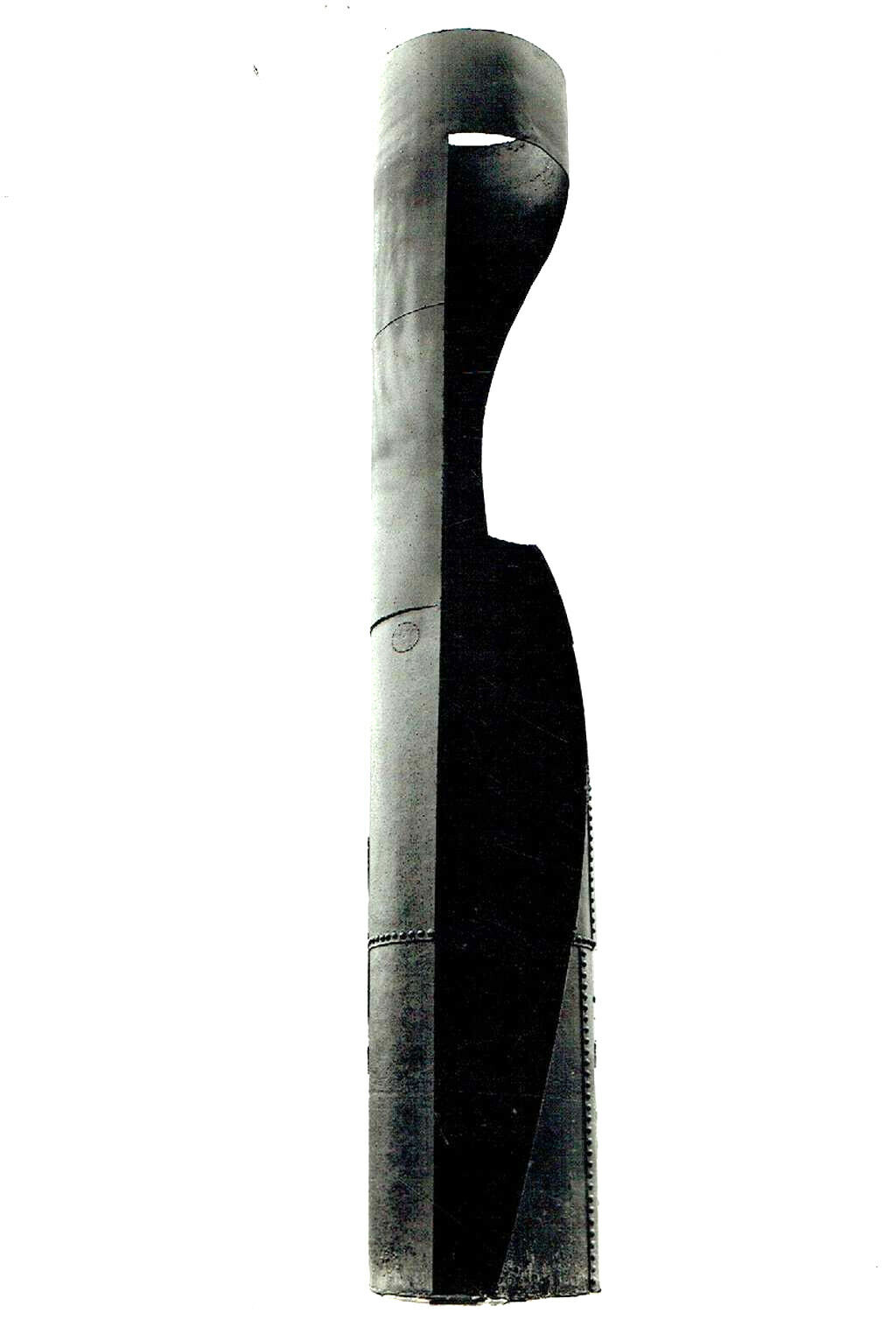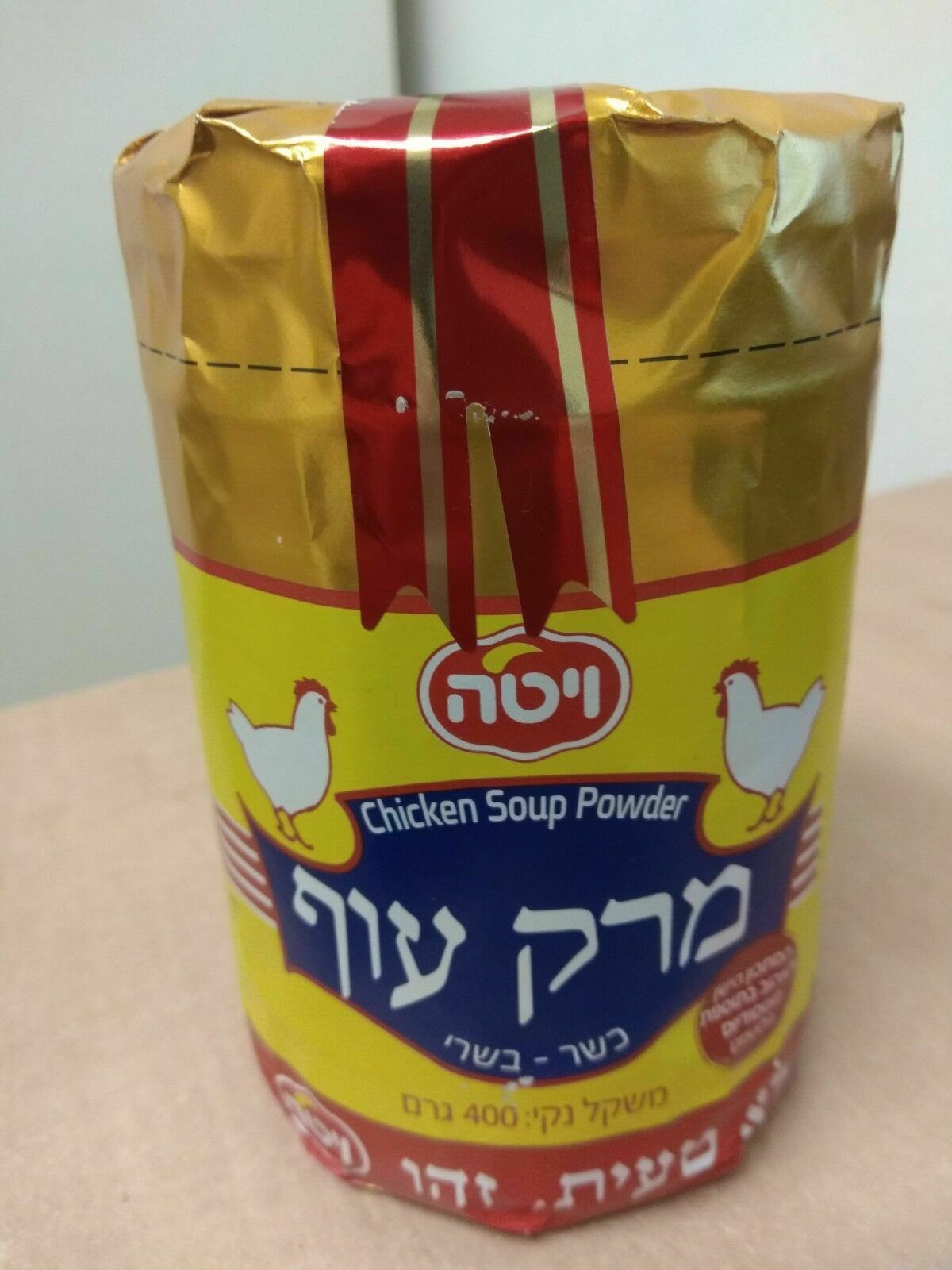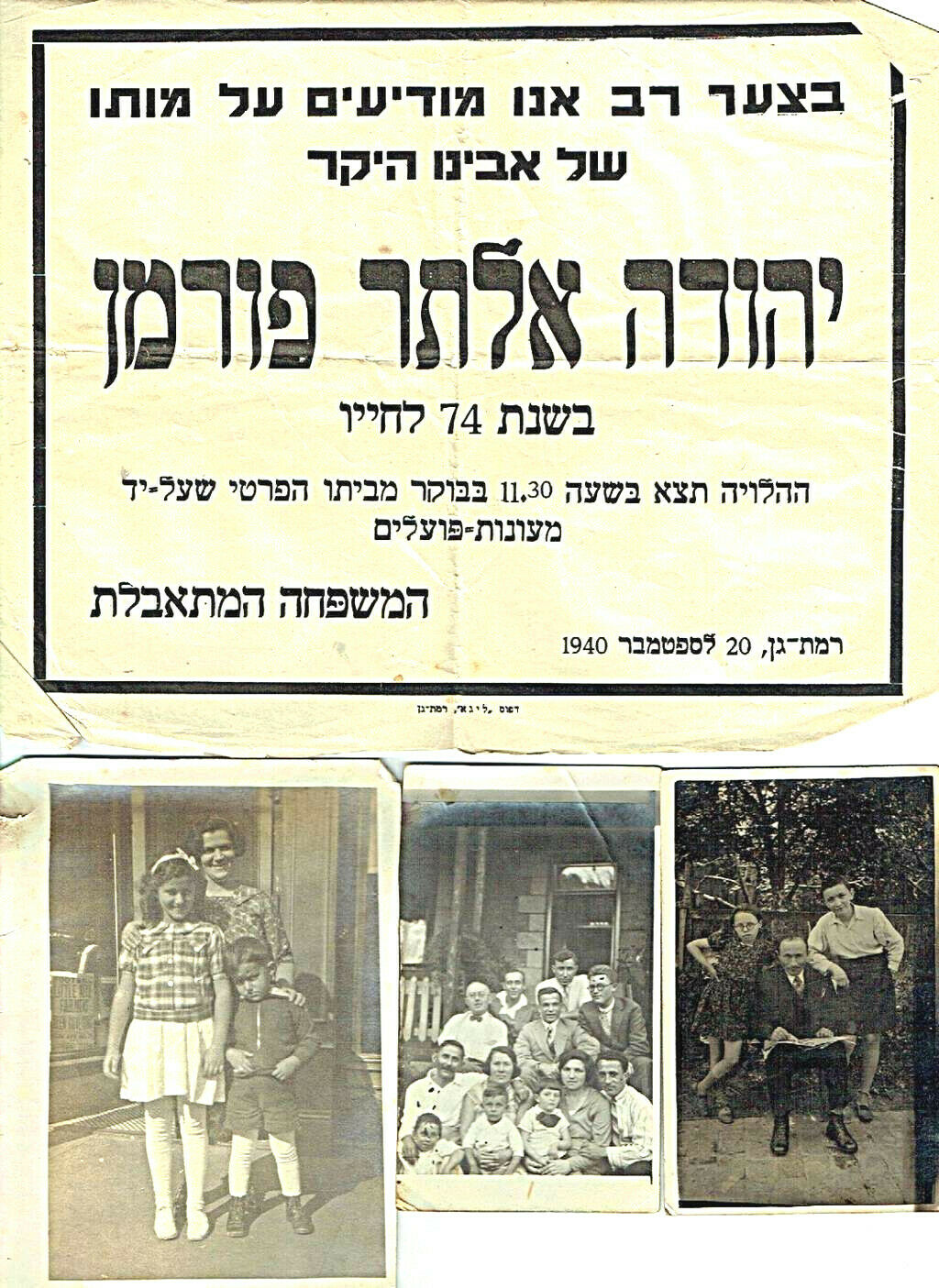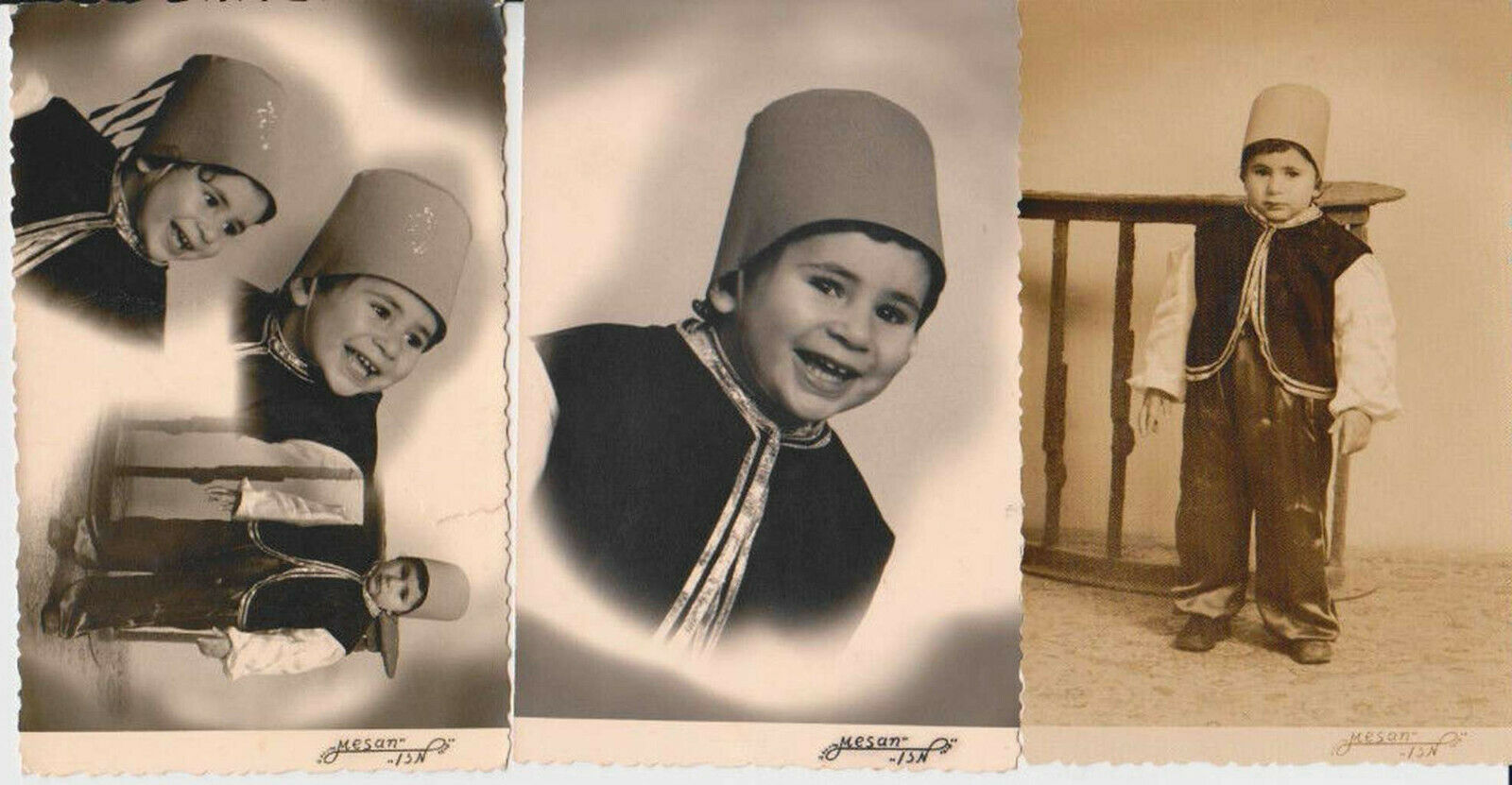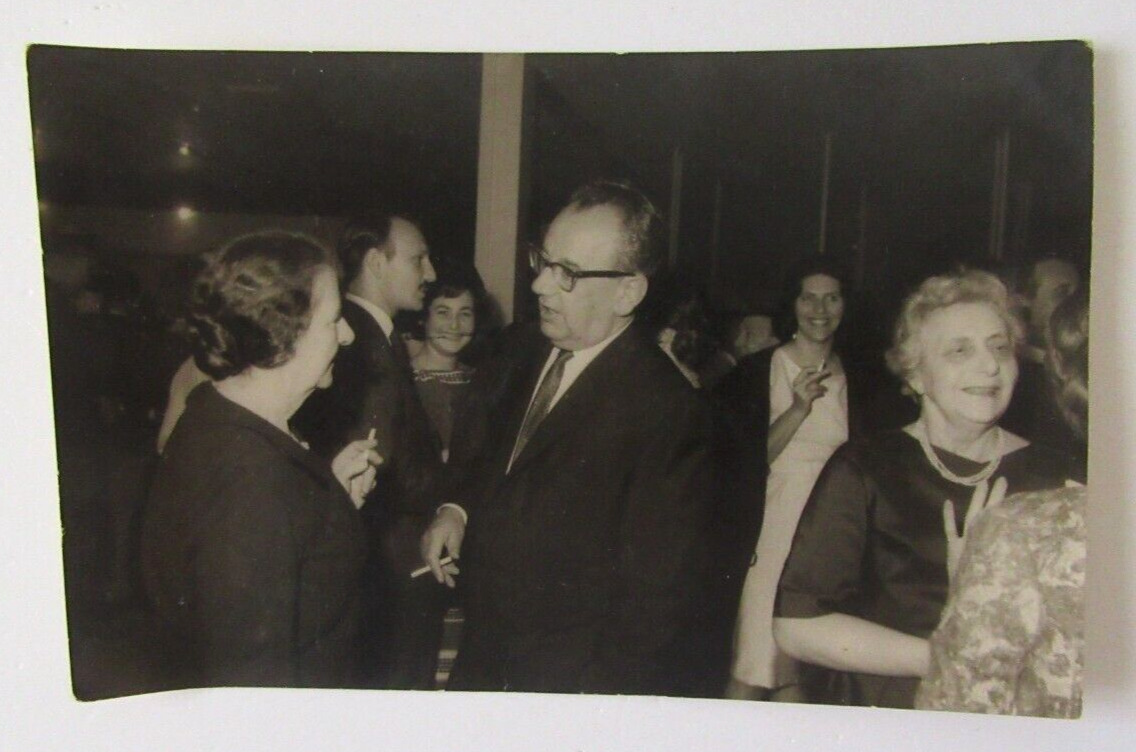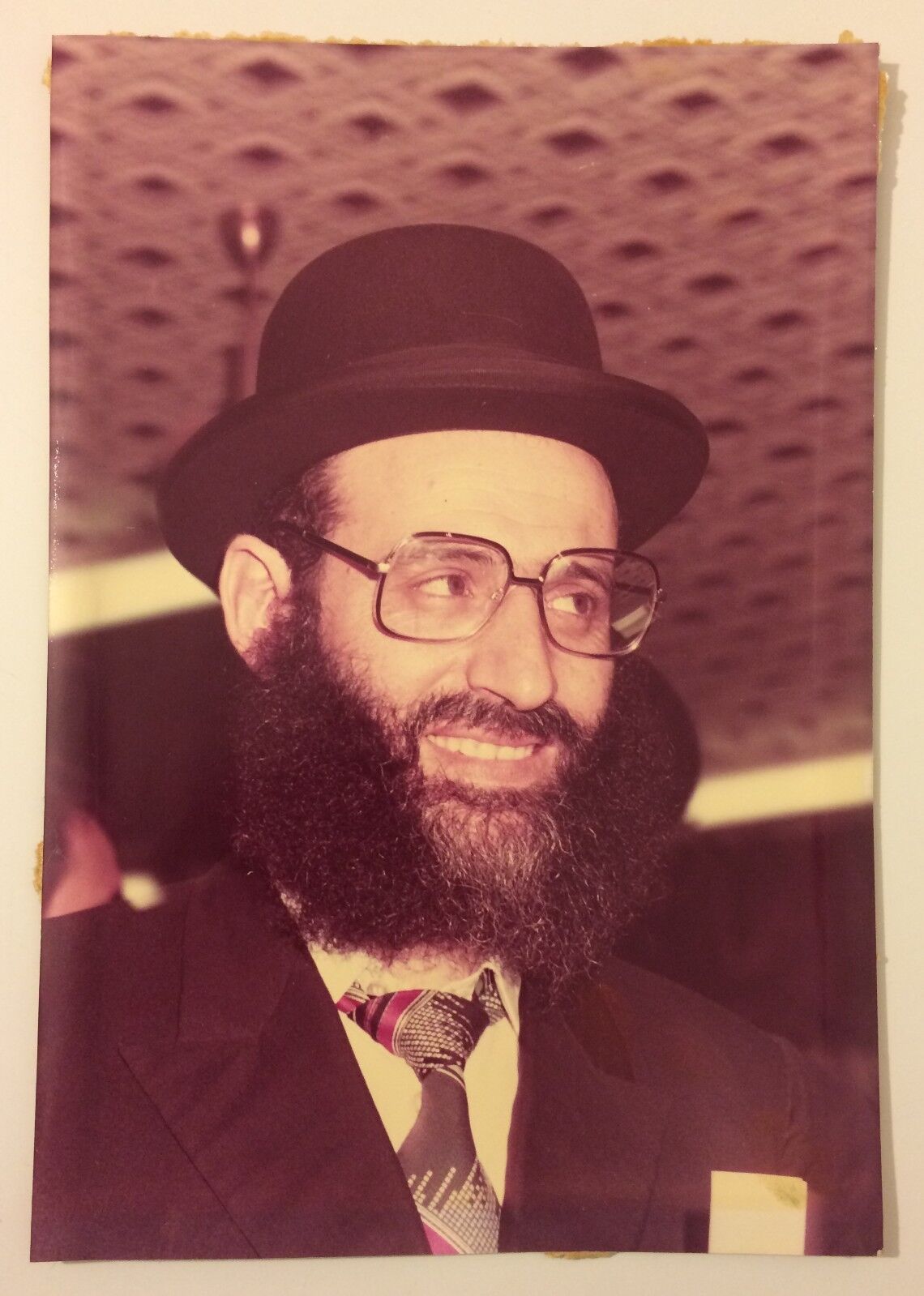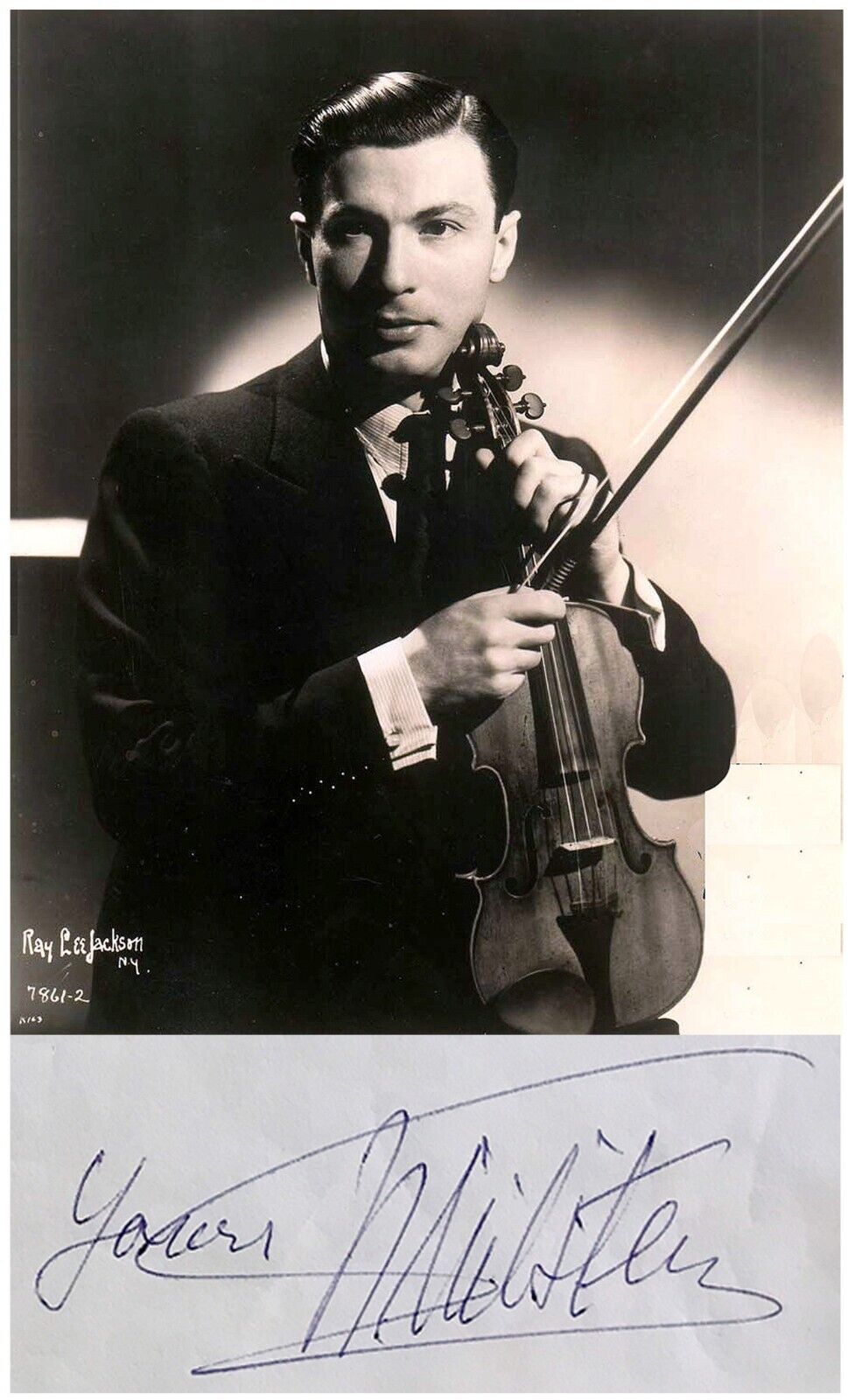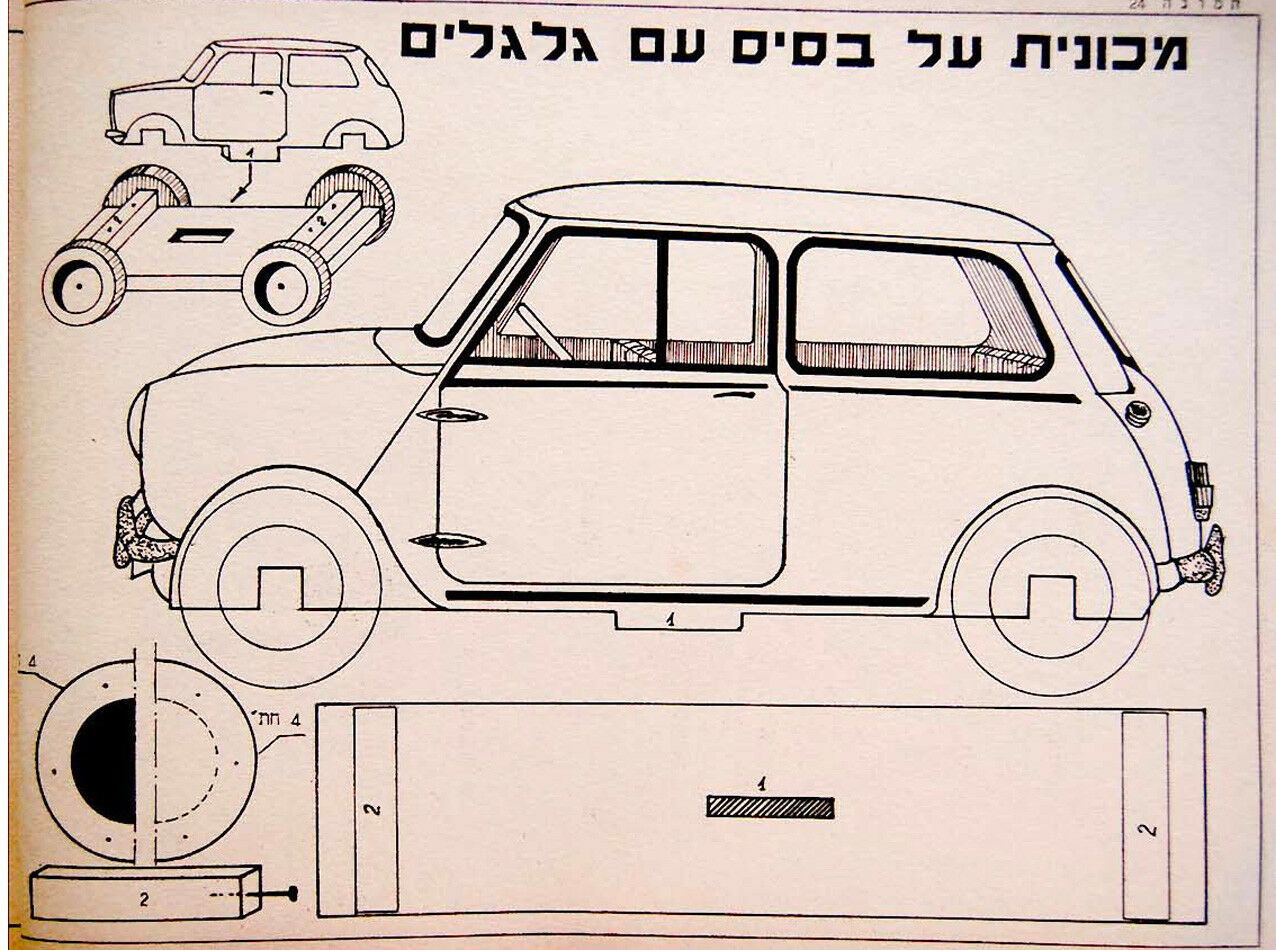-40%
1972 Israel BOUREKAS FILM POSTER Hebrew CULT MOVIE COMEDY Jewish JUDAICA
$ 71.28
- Description
- Size Guide
Description
DESCRIPTION:
Up for auction is an over 40 years old EXCEPTIONALY RARE and ORIGINAL Jewish - Judaica MOVIE POSTER for the ISRAEL 1972 PREMIERE of the legendary ISRAELI CULT FILM , One of the best known , Popular and beloved
BOUREKAS FILM
, One of the milestones of ISRAELI FILM MAKING and ISRAELI CULTURE and ENTERTAINMENT , The CULT FILM
"
NACHCHE VE'HAGENERAL
" ( Also"
NACHCHE and the GENERAL
" or "
Nahtche and the GENERAL
" ) Starrig the top row of the new young generation of ISRAEL THEATRE and FILM actors , The experts of the BOUREKAS FILMS , Legendary names like :
TZIPI SHAVIT , GABI AMRANI, DUBI GAL, TUVIA TZAPHIR , YAAKOV BODO
to name only a few , Written and directed by the Israeli film director
GEORGE OBADIAH
. The background of the plot is the Israeli army IDF - ZAHAL.
The motion picture Nahtche and the General is for those who like movies. Storyline - Comedy which revolves around the exploits of Nahtche and his constant success in disentangling himself from the grip of the persons who are after him and whom he is leading by the nose.
.
. Text in HEBREW . Please note : This is NOT a re-release poster but a PREMIERE - FIRST RELEASE projection of the film
.Size around 27" x 38" ( Not accurate ) . Printed in colors on plain white paper .
The condition is very good . 2 folding signs.
( Pls look at scan for accurate AS IS images ) Poster will be sent rolled in a special protective rigid sealed tube.
AUTHENTICITY
: This poster is guaranteed ORIGINAL from 1972 , NOT a reprint or a recently made immitation. , It holds a life long GUARANTEE for its AUTHENTICITY and ORIGINALITY.
PAYMENTS
:
Payment method accepted : Paypal
& All credit cards
.
SHIPPMENT
:
SHIPP worldwide via registered airmail $ 25 ( Israeli domestic shipp only with buy it now ). Poster will be sent rolled in a special protective rigid sealed tube.
Handling around 5 days after payment.
Tzipora (Tzipi) Shavit (born 1 April 1947) (Hebrew: ציפורה (ציפי) שביט) is an Israeli actress, comedian and entertainer, who is mostly known as one of the most prominent children entertainers in Israel. Shavit service, Shavit served in a Tzevet Havai of the Southern Command (צוות הווי פיקוד דרום). Not long after her release, after she participated in the film "Our Neighborhood" (השכונה שלנו), in 1969 her manager Abraham Deshe Pashanel managed to get her a part in the stage comedy show "A Funny Thing Happened to Me On The Way To Suez" (דבר מצחיק קרה לי בדרך לסואץ) written by Saul Biber, nevertheless the show was canceled shortly thereafter due to the publicized objection to it by a bereaved mother whom lost her son in The Sinai War. In 1971, Shavit participated in the successful stage musical "Jumbo" (ג'אמבו) in which she sang her famous song "Everyone went to the Jumbo" (כולם הלכו לג'מבו), to the tune of the Italian song Volevo un gatto nero. In 1972, Shavit participated in the stage show "Chocolate Mint Gum - The Zionist Congress of laughter" alongside Yardena Arazi, Ruti Holtzman and more.In 1974 her first husband died from Aplastic anemia. Later on Shavit remarried to the producer Avishai Dekel with whom she has two children. Tsippi Shavit is an actress, known for Lupo (1970), Te'alat Blaumilch (1969) and Ha-Balash Ha'Amitz Shvartz (1973).Yaakov (Yankale) Bodo (Hebrew: יעקב (יענק'לה) בודו) (born 1931) is an Israeli actor and comedian notable for numerous Israeli film appearances, for his years in theater, and for his work in the Yiddish language theater in particular. He is also notable for his performance as "Moishe Ventilator" (also Moishe Air-Condition [2]) in the self-titled theater show that ran over a thousand times and was eventually made into a film by that name in 1966.[1] Bodo is a recipient of the Israeli Theater Award lifetime achievement award, the Edith and Israel Pollack Award, and the Lerner Yiddish Foundation Award.Bodo was born in Romania in 1931, and spoke only Yiddish until the age of 7. He emigrated with his family to Israel in 1950 and settled in Afula. His grandparents were Zionists who helped establish Kfar Hasidim and Kiryat Haroshet after they emigrated to Palestine in 1933 (then under British Mandate control).[1]Early careerA year after his arrival in Israel, Bodo joined the Israel Defense Forces, where he first assembled and led the Southern Command Troupe. Following the disbanding of that troupe in 1954, he was assigned the creation of the Northern Command troupe, which he led for three and a half years.During this period, he came up with his "Moishe Ventilator" character. Upon his release, he starred in a theater show by that name which was a hit in the 1950s—running more than a thousand times[1][2]—and which was eventually made into a film version.[1]TheaterBodo performed on the stages of the institutionalized theaters Zira Theatre, Habima Theatre, Haifa Theatre as well as commercial theater, mostly in the Yiddish language, where he was successful. In 1992 he joined the Yiddish-Shpeil theater where he mostly performs in leading roles. Among the more notable plays he performed in were "Maagal HaGir" (lit. "The Chalk Circle"), and "Karnafim" (lit. "Rhinoceroses").FilmIn 1964 he performed in Ephraim Kishon's critically acclaimed film Sallah Shabati (Hebrew: סלאח שבתי) alongside notable actors and performers such as Chaim Topol, Gila Almagor, Zaharira Harifai, Shaike Levi, and Arik Einstein. The film was a satirical portrayal of the poor conditions and the integration of the Jewish refugees from Arab lands living in the maabara.In 1966, Bodo's character, Moishe Ventilator,[3][4] was picked up and made into a parody film by the same name (Hebrew: מוישה ונטילטור), where, under the direction of Uri Zohar, Bodo, accompanied by Shaike Ophir and the Gashah HaHiver trio, portrayed a frugal private whose cost cutting ideas include cutting on maps in the operation room, which are coveted by a spy who infiltrates the IDF ranks.[5][6]In 1967, he performed in Kishon's film Ervinka (Hebrew: ארבינקא, Starred by Chaim Topol), about an incorrigible layabout who becomes involved in a robbery of the Israeli lottery under the cover of making a documentary.Bodo has also performed in the films The Fox in the Chicken Coop (Hebrew: השועל בלול התרנגולות), Nahche and The General (Hebrew: נחצ'ה והגנרל), Millionaire in Trouble (Hebrew: מיליונר בצרות), Margo Sheli (Hebrew: מרגו שלי), Take When They Give (Hebrew: כשנותנים קח), Five Five (Hebrew: חמש חמש), A Miracle in The Village (Hebrew: נס בעיירה), Just Not on Saturday (Hebrew: רק לא בשבת), Not a Word to Morgenstern (Hebrew: אף מילה למורגנשטרן), and others.AwardsYaakov Bodo has been awarded the 2009 Israeli Theater Award lifetime achievement award, the Edith and Israel Pollack Award for 1999, and the Lerner Yiddish Foundation Award for 2000.Personal lifeBodo is married with three children and has five grandchildren. He is still married to his wife and personal manager, Ester, whom he met in Afula, the city that his family was sent to soon after they emigrated to Israel in the early 1950s.[1] The cast of Moishe Ventilator - 1966 includes: Ori Levy Tikva Mor Avraham Mor Shaike Ophir Reuven Shefer Gideon Singer This is a kind of comedy that might have been more at home on the burlesque stage, featuring a sad sack of an army draftee played by an actor who although skilled-- this was a defining role for Yaackov Bodo's career-- is too old to play an enlisted man and who elicits slow-burn reactions from an officer who wears a gigantic and obviously phony mustache. (The mustache comes with the Israeli stereotype of a master sergeant.) There is some fast mixed-up wordplay in the Abbott and Costello style, and there are light musical interludes from a young vocal trio-- the Gashashim-- who were just on their way to many years of similar comedy and song at the top of the Israeli entertainment world. The plot is a thin excuse for a collection of skits with little progression, although it does accumulate (one could scarcely say it builds) to a point near the end where Bodo looks back on it all in a monologue that deepens the tone a bit. The disjointed structure of the film presumably has to do partly with lack of funds and partly with the anarchic sensibility of director Uri Zohar, who even jump-cuts a few visual impossibilities into one of the musical numbers. (This was right after Richard Lester's HELP!) Also on hand is Shai K. Ophir, the Israeli master of mime, who does a silent turn as a safe-cracker. Bourekas films (Hebrew: סרטי בורקס) were a genre of Israeli-made movies popular in Israel in the 1960s and 1970s. Haaretz film critic Uri Klein describes Bourekas films as a "peculiarly Israeli genre of comic melodramas or tearjerkers... based on ethnic stereotypes."[1] They were "home-grown farces and melodramas that provided escapist entertainment during a tense period in Israeli history."[2] The term is said to have been coined by the Israeli film director Boaz Davidson, the creator of several such films, as a play-on-words on the "spaghetti western" genre, known as such because that particular Western sub-genre was produced in Italy. Bourekas is also a notable dish from Israeli cuisine. Gefilte-fish Films "Gefilte-Fish" films, also known as "bourekas for Ashkenazim" are a maringal group of Bourekas films that feature Ashkenazi protagonists and ghetto folklore.[3] Some films in this sub-genre include: Kuni Lemel, 1968 (Israel Bekers) Lupo, 1970 (Golan) Kuni Lemel in Tel Aviv (1976) (Yoel Zilberg) Lupo in New York (1976) (Davidson) Hershele, 1977 (Yoel Zilberg) Marriage Tel Aviv Style, 1980 (Yoel Zilberg) Aunt Klara (HaDoda Klara), 1977 (Avraham Hefner) Themes The main theme in most Bourekas films is the conflict between ethnic cultures in Israel, in particular between the Mizrahi Jews and the Ashkenazi Jews. The hero is usually a Mizrahi Jewish man, almost always poor, canny and with street smarts, who comes into conflict with the institutions of the state or figures of Ashkenazi origin - mostly portrayed as rich, conceited, arrogant, cold-hearted and alienated. In many of these films, actors imitate different Hebrew accents, especially that of Jews originating from Morocco, Persia and Poland. They employ slapstick humour, alternate identities and a combination of comedy and melodrama. In a paper entitled "A Shtetl in Disguise: Israeli Bourekas Films and their Origins in Classical Yiddish Literature," Rami Kimchi claims that the portrayal of Israeli Mizrahi communities in these films bears a strong resemblance to the portrayal of the 19th century East European shtetl by classic Yiddish writers.[4] Kimchi attributes the commercial success of these films to their "hybridity," i.e. they were Israeli/Mizrahi and Diasporic/Ashkenazi at one and the same time, thereby satisfying the political, sociological, and psychological needs of both Mizrahi and Ashkenazi audiences in Israel.[5] He believes eleven films produced between 1964 and 1977 make up the corpus of the genre.[6] Actors and directors Bourekas films were highly successful in Israel during the 1960s and 1970s, but were also criticized for being shallow. Some of the main actors and directors were: Ze'ev Revach - an actor and director who participated in many popular Bourekas film comedies such as Hagiga B'Snuker (1975), Charlie Ve'hetzi (1974), Rak Hayom (1976), Gonev Miganav Patoor (1977), Ta'ut Bamispar (1979), Ha-Muvtal Batito (1987), Lo La'alot Yoter (1979), Sapar Nashim (1984), Pa'amaim Buskila (1998), and more. Revach eventually became the person which is most identified with the Bourekas films and continued to create those films until the end of the 1980s. George Obadiah - a director who created many melodramas which were influenced (and at times copied) from the Turkish cinema. The most prominent of his films are : Ariana (1971), Nurit (1972), Sarit (1974), Na'arat haparvarim (1979), and more. Obadiah created also comedies like Nahtche V'Hageneral (1972), Fishke Bemilu'im (1971) and Koreyim Li Shmil (1973). Yehuda Barkan - an actor and director who participated in many Bourekas films such as Lupo (1970) and Lupo B'New York (1976), Katz V'Carasso (1971), Charlie Ve'hetzi (1974), Hagiga B'Snuker (1975), Bo Nefotzetz Million (1977) and more. Barkan also played in the 1980s Abba Ganuv film series and directed them. Boaz Davidson - a director of many Bourekas film comedies such as Charlie Ve'hetzi (1974), Hagiga B'Snuker (1975), Mishpahat Tzan'ani (1976), and Lupo B'New York (1976). His films Charlie Ve'hetzi and Hagiga B'Snuker had a 'revival' in the 1990s and a status of Israeli cult film status. Yosef Shiloach - Played in several Bourekas film comedies, in parallel with a set of dramatic and more serious roles he played in a variety of Hollywood films. A character which is identified with him in particular is "the Persian" - a somewhat sensual grotesque who possesses a strong Persian accent. Tuvia Tzafir - Played in several Bourekas films, particularly in the role of the grotesque "Ashkenazi" character. Menahem Golan - a director and producer of many fiscally successful Bourekas films such as Lupo (1970), Fortuna (1966), My Margo (1969), and Queen of the Road (Malkat haKvish)" (1971). Films Several prominent Bourekas films are listed below in chronological order of production. Sallah Shabbati (1964) - directed by Kishon Fortuna (film) (1966) - directed by Menahem Golan Moishe Vintelator (1966) - directed by Uri Zohar 999 Aliza Misrahi (1967) - directed by Menahem Golan Kuni Lemel (1968) - directed by Israel Bekers Ha-Shehuna Shelanu (1968) Our Neighborhood (HaShkhuna Shelanu) (1968) - directed by Uri Zohar My Margo (1969) - directed by Menahem Golan Queen of the Road (Malkat haKvish) (1971) Salomonico (1972) Ha-Meshahnei'a Ba'am (1973) Haham Gamliel (1973) Kazablan (1974) - a story of a young Mizrahi man who falls in love with an Ashkenazi girl, starring Yehoram Gaon Hagiga B'Snuker (1975) Yi'ihiyeh Tov Salmonico (1975) -with Reuven Bar-Yotam Critical Reviews Although Bourekas films were some of the most successful in the box office, they typically received terrible reviews from critics. They were cited as "low-brow" and "vulgar", with great concern as to this genre of film representing the Israeli people abroad.[7] In critiquing Sallah Shabbati Biltzki in Al hoMishmar said, "Because parties in Israel are presented not only in the distorted mirror of a distorted humor but also in the ugly mirror of the image of public and organizational life...One has to think twice if such a film should represent us abroad."[8] Demise of the genre At the end of the 1970s, the popularity of the Bourekas film declined. In the 1980s, Israeli films became more politically charged and began to address controversial topics. Nowadays many of the Bourekas films have gained cult status in Israel. Bourekas films (סרטי בורקס) were a film genre popular in the 1960s and 1970s. Central themes include ethnic tensions between the Ashkenazim and the Mizrahim or Sephardim and the conflict between rich and poor.[12] The term was supposedly coined by the Israeli film director Boaz Davidson, the creator of several such films,[13] as a play-on-words, after "Spaghetti Western:" just as the Western sub-genre was named after a notable dish of its country of filming, so the Israeli genre was named after the notable Israeli dish, Bourekas.[citation needed] Bourekas films are further characterized by accent imitations (particularly of Jewish people originating from Morocco, Persia, and Poland); a combination of melodrama, comedy and slapstick; and alternate identities.[citation needed] Bourekas films were successes at the box office but panned by the critics. They included comedy films such as Charlie Ve'hetzi and Hagiga B'Snuker and sentimental melodramas such as Nurit. Prominent filmmakers in this genre during this period include Boaz Davidson, Ze'ev Revach, Yehuda Barkan and George Ovadiah. Paul Lawrence Smith (June 24, 1936 – April 25, 2012), better known as Paul L. Smith, was an American stand-up comedian, actor, singer, and comedian, best known for generally portraying villains and "heavies". His most notable roles include Hamidou, the vicious prison warden in Midnight Express (1978), Bluto in Popeye (1980), Gideon in Masada (1981), and Glossu Rabban in Dune (1984). Smith was sometimes credited as Paul Smith. On April 25, 2012, Smith died in Ra'anana, Israel. Currently, his cause of death is unconfirmed.Smith was born Paul Lawrence Smith in Everett, Massachusetts on June 24, 1936. He attended Miami Senior High School in Miami, Florida and graduated in 1954. Afterwards, Smith attended Brandeis University for a short time and transferred to Florida State University on a football scholarship graduating in 1959 with a B.S. degree in Philosophy.Rumors have stated that Smith was born on February 5, 1939 and died on April 24, 2012. Shortly after his death, these have been confirmed to be false information.At age 12, Smith weighed 200 pounds and was 6 ft. tall.[1]CareerSmith's first acting role was in Exodus, which was filmed in Israel. This was his first visit to the country. In 1967, Smith returned to Israel as a Mahal volunteer in the Six-Day War and stayed there until 1973. In that time, he participated in 5 productions filmed in Israel.Afterwards, he moved to Italy where, due to his resemblance to Bud Spencer, he made a series of films with Terence Hill lookalike Michael Coby (pseudonym of Antonio Cantafora). One of these films Convoy Buddies was picked up for American release by Film Ventures International where producer by Edward L. Montoro changed Smith's name to Bob Spencer and Cantafora's name to Terrance Hall. Smith sued[2] successfully arguing that the only thing an actor has is his name and if that's taken away, he has nothing. The judicial system agreed with him and ruled against FVI who paid Smith damages and court costs.[3]In 1977, Smith moved to Hollywood, making appearances in such films as 21 Hours at Munich (1976), Midnight Express (1978), as Bluto in Popeye (1980), and as Glossu Rabban in Dune (1984).Personal lifeSmith was of Jewish religion. Smith married Eve Smith. In February 2006, they emigrated to Israel, adopting Ra'anana as their new home. After taking Israeli citizenship, the couple adopted Hebrew names: Adam and Aviva Eden. DeathOn April 25, 2012, Smith died in Ra'anana, Israel.[4] The cause of death is unconfirmed. Massive, heavily bearded American actor Paul L. Smith had been a professional athlete before gravitating to films in the late '70s. His first important role was as the brutal, depraved Turkish prison guard Hamidou in Midnight Express (1978). Consigned by his size and weight to play villains (or at the very least, bullies), Smith was cast as Bluto, eternal nemesis to Popeye the Sailor and Olive Oyl, in the 1980 film/musical misfire Popeye. After several years of giving his all in abnormal roles in such films as Dune (1984) (as Beast Rabban), Red Sonya (1985) (as Falkon) and Caged Fury (1986) -- with a few side trips to Europe to make spaghetti westerns -- Smith gradually began to get parts that allowed him to play a recognizable human being. Paul L. Smith's appeared in 1994's Maverick as a Russian prince who travels to America for the express purpose of shooting Indians. The performance might have been broad and overstated, but at least Smith was believable -- and, despite the gross political incorrectness inherent in the role, he was even likable. Nahtche and the General (1972) Title: Nahtche and the General Original Title: Nahtche V'Hageneral Comedy which revolves around the exploits of Nahtche and his constant success in disentangling himself from the grip of the persons who are after him and whom he is leading by the nose. Directing: George Obadiah Writing: Eli Tavor Stars: Paul L. Smith Ya'ackov Bodo Gabi Amrani Movie Overview The movie Nahtche and the General produced by was released on 1972-06-06. The movie cast includes big names like Ya'ackov Bodo, Gabi Amrani, Dubi Gal, Tsippi Shavit, Gideon Singer, Paul L. Smith, and others. The motion picture Nahtche and the General is for those who like movies. Storyline Comedy which revolves around the exploits of Nahtche and his constant success in disentangling himself from the grip of the persons who are after him and whom he is leading by the nose. ebay2783








